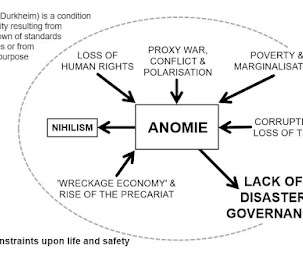Community Resilience or Community Dystopia in Disaster Risk Reduction?
Emergency Planning
FEBRUARY 6, 2020
Several arguments can be marshalled against the idea of community resilience:- The concept of 'community' has no inherent geographical scale. The struggle to create community resilience pits organised collective action against individualism. But how does this translate into community resilience?














Let's personalize your content